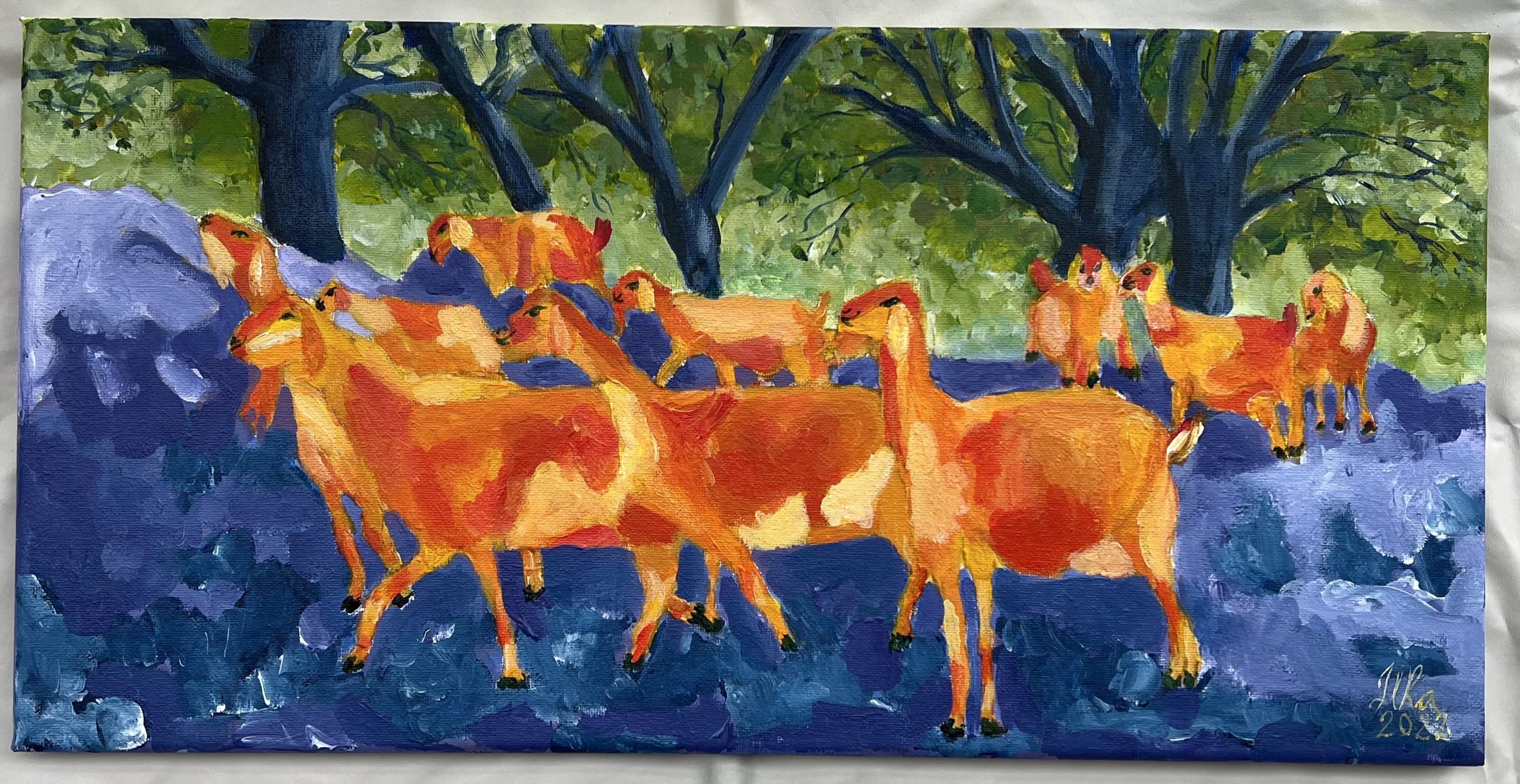Translated by Marvin Najarro
She takes the avocado from her lunch box and cuts in half, takes out the bag where she has the toritllas that she had wrapped in aluminum foil, and then removes the lid from the plastic food container where she has fried beans and three boiled eggs. Wrapped in a napkin is a fistful of salt and a jalapeño pepper. She has coffee in the thermos bottle. It is mealtime.
Calandria Guadalupe, began working at age five, making comales from clay in the village of Santa Maria Magdalena Tiltipec, Santos Reyes Nopala, Oaxaca, Mexico, she was the fifth of twelve siblings, in an artisan family, who make a living by making clay pots and comales, which they sell at the local market.
Between the craftwork, and the corn harvest, her family was able to stay afloat, until the Teflon cookware carried by peddlers, who used to cross the Usumacinta River with their wares, began to arrive. They said they were made in Central America from scrap metal that was transported in shipping containers from Mexico to Costa Rica.
Step by step the Teflon cookware made in Nicaragua were flooding Central America, and soon after they were in Mexico. In the village where the family of Calandria Guadalupe live, the effect they had was impressive. They heat up faster, didn’t break, and food didn’t stick. This was how, little by little, the Teflon cookware flooded the stores, and the artisans that worked with clay had to go to increasingly distant places to try to sell their product.
A day came when the Teflon utensils were in all stores. Forced emigration became part of the new reality of pottery villages and towns. Her family tried to get ahead by selling food and atoles, but the profits were not enough to feed twelve children. The first to emigrate was her father, followed by her two older brothers, and the family that has always been a very close one, was separated for ever when two sisters traveling as wetbacks, die suffocated inside a tractor-trailer transporting undocumented immigrants.
Her two brothers got married, and the remittances went down, only her father continued sending money. That’s why Calandria Guadalupe emigrated, to help his father so that her young siblings could finish school. She has just arrived, she is thirteen years old and should be in school, but she came to work, not to study, she told her cousins, who along with her father went to pick her up when the coyote handed her over. To sleep in an apartment with eight other people, was nothing new for her, in her home in Oaxaca, six siblings slept in each bed. The beds were made of boards, and instead of mattresses they had petates.
They got her a night job, but one her cousins’ friend told her that in three days she would get her a dishwasher job during the day, so that with two jobs she will be able to send remittances within a short time.
It’s one o’clock in the morning, time to eat. She has been standing for six hours, packing cereal boxes; her shift will end at seven o’clock in the morning. Calandria Guadalupe, wash her hands and take her lunch box and thermos to the dining area, she is amazed to see dozens of girls probably her own age, and others younger than her. She slices the avocado, one that has neither the size nor the taste of the avocados she used to eat from the tree in the yard of her house, this one is tasteless, the same as the tortillas, the beans, and the coffee.
If you share this text in another website and/or social media, please cite the original source and URL: https://cronicasdeunainquilina.com
Ilka Oliva-Corado @ilkaolivacorado






